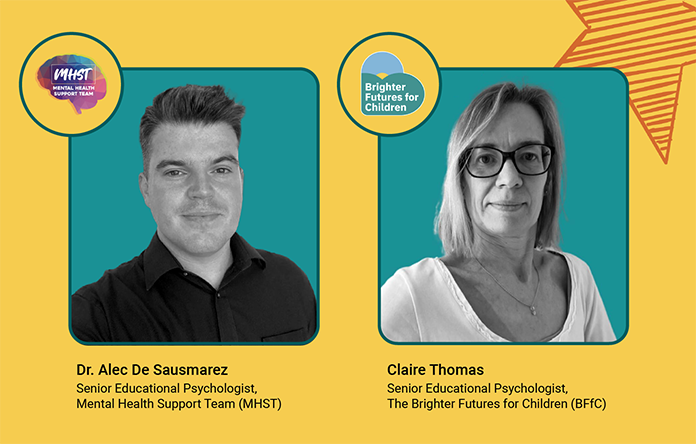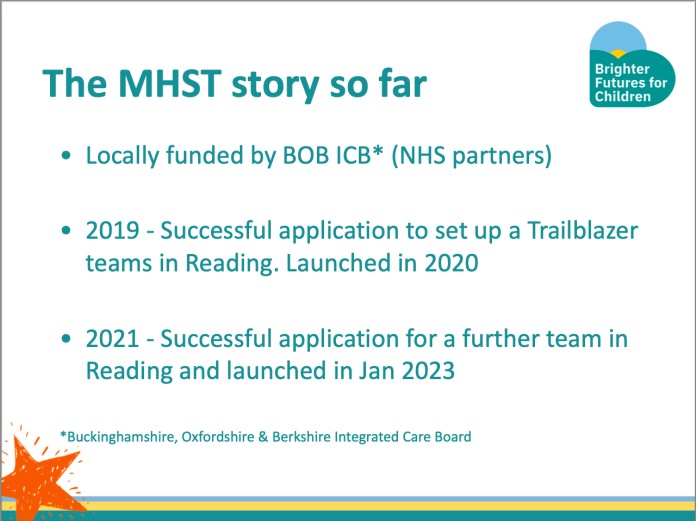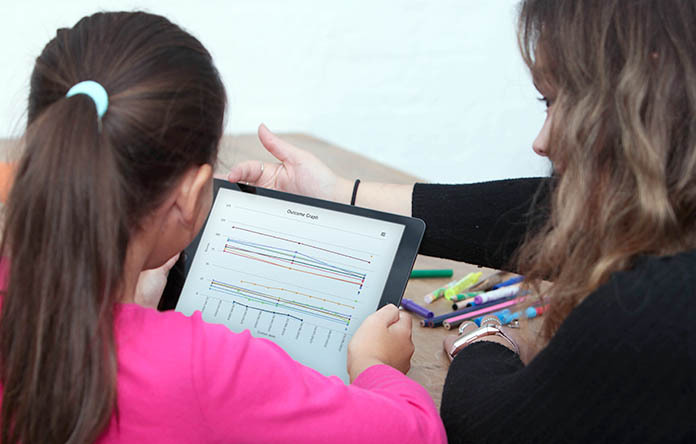
Mayden’s mission is to create digital technology that changes what’s possible for clinicians and patients and our iaptus system is used by a range of providers, NHS trusts, national and local charities, for their community mental health services for Children and Young People (CYP).
We were really pleased that Claire and Alec from Brighter Futures for Children (BFfC) were guest speakers at our recent virtual event for Mental Health Support Teams (MHSTs) and other teams providing mental health support in schools and colleges. Claire and Alec are both Senior Educational Psychologists and they shared their experiences of setting up a project to address health inequalities for CYP from ethnically diverse groups in Reading.
Why is addressing health inequalities so important?
Health inequalities is a key topic for NHS England at the moment at national level and at local system level. They’re placing high priority on the theme, and have asked all local systems to develop plans for reducing health inequalities in their population.
The BFfC team recognised that cultural stigma and discrimination were stopping young people from talking about mental health and the team wanted to do more to ensure young people felt heard and were better able to access their MHST services.

“We started our health inequalities project because we could see that the pattern of referrals into mental health support, including from our Mental Health Support Teams, wasn’t reflective of the ethnically diverse local population in Reading. We knew we had to explore the barriers to access and how we could support children and young people from more diverse backgrounds.
iaptus has been vital in helping our team to understand our referral data and identify the work we needed to do. We’re lucky to have a data analyst in our team who helps us to use the data in iaptus to answer our questions about referrals so that we can improve our service offering. Next, we’ll be looking into school exclusions which have been identified as a key area disproportionately impacting children and young people from ethnically diverse backgrounds” Claire Thomas, Senior Educational Psychologist, Brighter Futures for Children MHST
BFfC suggests that MHSTs need to consider the cultural context for individuals and whether they have a faith or community support system that is already helping to meet their mental health needs. Meaning we should not assume that therapeutic interventions are always the answer.
It’s an expectation that if a child has mental health needs, that they would engage with the MHSTs or a similar organisation, and that might not always be the case. Therefore, lower referrals from certain groups aren’t necessarily something to be concerned about. But it’s something to be aware of and make sure an action plan is in place, so CYP are able to get support if they need it. Our speakers advised MHSTs to put in place better promotion of mental health services and support that is available to the ethnically diverse young people.
Key outcomes from the project:
- The proportion of CYP referred into MHSTs from black and minority ethnic groups has increased since the project started in 2022.
- The BFfC team have developed stronger links with community and faith groups in the population that they serve.
- There’s better understanding of how schools and organisations can support those from ethnically diverse backgrounds, supported with a racial equity and anti-racist agreement.
- Information and resources have been developed and will be available on the BFfC website to signpost families from diverse ethnic groups to social, emotional, educational and employment support.
Top Tips for MHSTs looking to address health inequalities:
- Understand the voice of the communities that the schools in your area serve. Run focus groups in schools with young people, and build links with community and faith groups to seek their views to help understand what MHSTs could improve on, what we might have been doing well, where there were gaps and what we needed to do better.
- Set up a task and finish group focusing on the key issues impacting children, young people and their families from the global majority, focussing particularly on the work around exclusions from school access to advice and resources.
- It’s really important that we recognise it’s the responsibility of the MHSTs to support communities to improve mental health literacy.
- MHSTs need a cultural understanding that some individuals may use their faith and community support system to support their mental health. We should not always assume that therapeutic interventions are always the answer.
- Young people are very capable of finding their own resources and capable of using their own community to resource their own mental health support. However, it’s really important that we recognise that this is something that’s available in different levels for different communities.
Our speakers from Brighter Futures for Children highlighted that setting up a task and finish group for a defined period doesn’t mean the work will be done. Addressing health inequalities is an ongoing piece of work. It’s about always being aware of inequalities for your populations and responding as communities in your area change and evolve.
Join us for our next webinar for Mental Health Support Teams:

For our next event on the 14th May, we would like to invite you to our offices in Bath to continue the conversation in person. It’ll be a fantastic opportunity to network with your peers and a chance to meet our guest speakers, Young Somerset MHST, face-to-face.
[Register in person]
This event will be hybrid, so if you can’t be there in person, you can still register virtually below:
[Register virtually]
Do you need a system to help support your vital work with children and young people?

iaptus is supporting Brighter Futures for Children to manage their referrals and care. It can be configured to different service care pathways, and the system can be changed as your service evolves. It helps practitioners to manage their caseloads, keep session notes, record outcomes and capture data for the national data set.
Get in touch today to set up a demo of the system.

